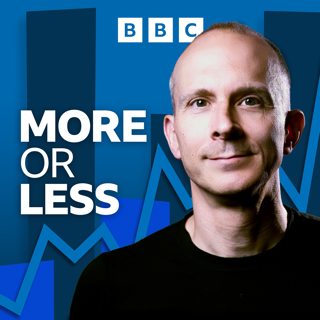
Eurostats - True or False?
Are there really more Porsche Cayenne owners in Greece than taxpayers earning over 50,000 euros? Can there really be 30,000 chauffeur driven cars for the exclusive use of Italian politicians? Would it really be cheaper to send everyone by taxi than train in Greece and is youth unemployment in Spain really 50%? Ruth Alexander and Wesley Stephenson take a very close look at some widely reported Eurostats to see whether they stand up to scrutiny for out this week's More or Less. This programme was first broadcast on the BBC World Service.
13 Huhti 20129min

Stamp prices and the first maths book
The Royal Mail says UK stamp prices are still among the best value in Europe, despite an imminent steep price rise. Tim Harford finds out whether this is true, and compares the price of postal services around the world. Plus, he finds out how, after being invented by Indian mathematicians, modern numbers became established in the ancient Arab world and then journeyed on to Europe in what was essentially the first maths textbook ever written, "Liber Abaci". Its author was Leonardo of Pisa, better known as Fibonacci. Tim speaks to Keith Devlin, author of The Man of Numbers, to find out more. This programme was first broadcast on the BBC World Service.
6 Huhti 20129min

Do big football clubs win more penalties?
Do Manchester United and other leading clubs like Real Madrid and Barcelona benefit from biased refereeing decisions when they play in front of their home crowd? It’s a widely-held view, but Tim Harford challenges it with a look at the penalty statistics. Plus, he meets Hans Rosling of Gapminder at the Skoll World Forum: if you want to understand the world you’re living in, and how it will be different to the world your children and grandchildren will live in, listen to this interview. This programme was first broadcast on the BBC World Service.
30 Maalis 20129min

What is the world average salary?
If there were perfect income equality worldwide, and everybody earned the same amount of money, how much would they earn? And what is the average employee wage across the world? Tim Harford answers both these questions. Plus, he attempts to rank the world’s top military forces. This edition of the programme was first broadcast on the BBC World Service.
23 Maalis 20129min

Red meat death risk?
Eating an extra portion of red meat every day is associated with an increased risk of death, says a new study. But what does this mean? A risk expert works it out for Tim Harford. Plus, which are the world’s largest employers? This edition of More or less was broadcast on the BBC World Service.
16 Maalis 20129min

Is Apple worth more than Poland?
Tim Harford explains why the technology giant Apple is not bigger than Poland, as media reports have claimed. And he scrutinises the claim that the Millennium Development Goal on safe drinking water has been achieved ahead of schedule. The World Health Organisation, which along with Unicef announced that the target had been met, concedes that the numbers are not actually that certain. This programme was originally broadcast on the BBC World Service.
9 Maalis 20129min

Less than a dollar a day
Tim Harford assesses how global poverty is measured, as the World Bank releases the latest figures on the number of people living on less than a dollar a day. What progress has been made, and how useful a benchmark is this “dollar a day” global poverty line? This programme was originally broadcast on the BBC World Service.
2 Maalis 20129min

Syria poll and Europe’s work hours
Fifty-five per cent of Syrians do not think their leader President Assad should resign, according to media reports of an opinion poll. It’s a striking number, given the bloody violence that has broken out in Syria. But Tim Harford discovers that, on closer inspection, the statistic is not what it seems. Plus, which European country works the longest hours? You might be surprised. This programme was first broadcast on the BBC World service.
24 Helmi 20129min





















